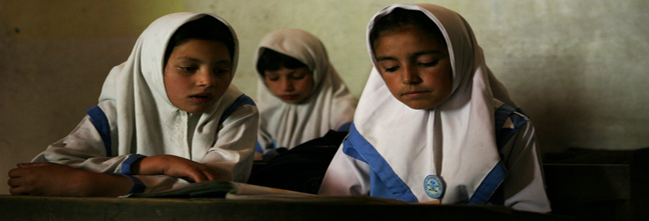
Anthropology graduates who enjoy communicating their ideas and working with young people often go on to complete a Postgraduate Certificate in Education (PGCE) and pursue a career in teaching. Currently in Britain there is no PGCE in anthropology, but teachers are able to complete a PGCE in related subjects such as geography, sociology, or citizenship. At pre-university level, anthropology is taught by a handful of schools and colleges as part of the International Baccalauréate Diploma and SQA Social Anthropology units. A number of teachers with degrees in anthropology currently teach subjects such as religious education, sociology, geography, citizenship or biology. Anthropology graduates have also gone abroad to teach ESL or social sciences at independent schools around the world.
Anthropology graduates bring the advantage of their holistic knowledge and skills to their teaching, and are often able to devise inventive ways to challenge students’ preconceptions about the world they live in. Teaching anthropology itself at pre-university level – whether as a freestanding subject or as a component of other curricula – can be challenging. Anthropological theories and concepts need to be communicated in an accessible way, and anthropology made relevant to students’ everyday realities. Teachers often have to work with limited resources, and are under time pressures and deadlines to get students through the curriculum. Alongside the challenges are the rewards of seeing students deepen their skills and understanding, the opportunity to convey anthropological knowledge creatively, and the security of relatively steady employment.
Recommended Resources
Visit our Anthropology of Childhood webpage
General
http://www.schoolzone.co.uk/ – a website with thousands of free resources for teachers
Visit our For Teachers section to find out about IB Anthropology and SQA Social Anthropology Units plus resources for teaching anthropology at pre-university level.
Teaching Resources
Take a look at our Resources and For Teachers sections for publications, links, films, sample lesson plans and more!
Articles
http://eardevol.files.wordpress.com/2008/10/ardevol_vl.pdf – an article about teaching anthropology through distance learning.
Journals
http://www.teachinganthropology.org/ Teaching Anthropology (TA) is a peer-reviewed, open-access journal dedicated to the teaching of anthropology. A journal of the Royal Anthropological Institute, TA promotes dialogue and reflection about anthropological pedagogies in schools, colleges and universities.
http://eu.wiley.com/WileyCDA/WileyTitle/productCd-AEQ.html – Anthropology & Education Quarterly is a peer-reviewed journal that draws on anthropological theories and methods to examine educational processes in and out of schools, in US and international contexts.
Recruitment
http://www.uteachrecruitment.com/ – a recruitment agency for teachers and database for employers.
http://www.tes.co.uk/jobs/– The Times Educational Supplement’s job listing page
Professional Organisations, Groups and Associations
Council on Anthropology and Education – the CAE (part of the American Anthropological Association) aims to advance scholarship on schooling in social and cultural contexts and on human learning within and outside schools.
Department of Education – the UK government department dealing with the those working with or for children and young people.
Institute of Education – a world-class research and teaching institution based in London.
International Baccalauréate– the IB is a non-profit educational foundation providing programmes of international education around the world. The IB Diploma includes an optional course in social anthropology.
Royal Anthropological Institute’s Education Programme – promotes the understanding and awareness of anthropology through events, educational materials, and teacher and student networks.
Smithsonian Institution’s Anthropology Outreach Office – encourages the promotion and understanding of anthropology and research conducted in the Smithsonian’s Anthropology Department.
Japanese Exchange Teaching Programme

